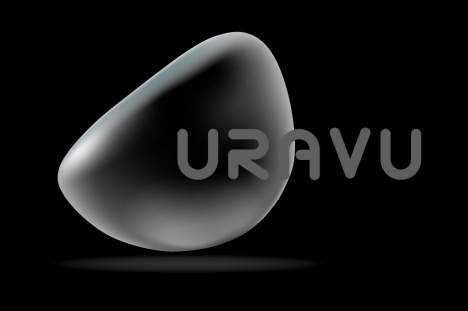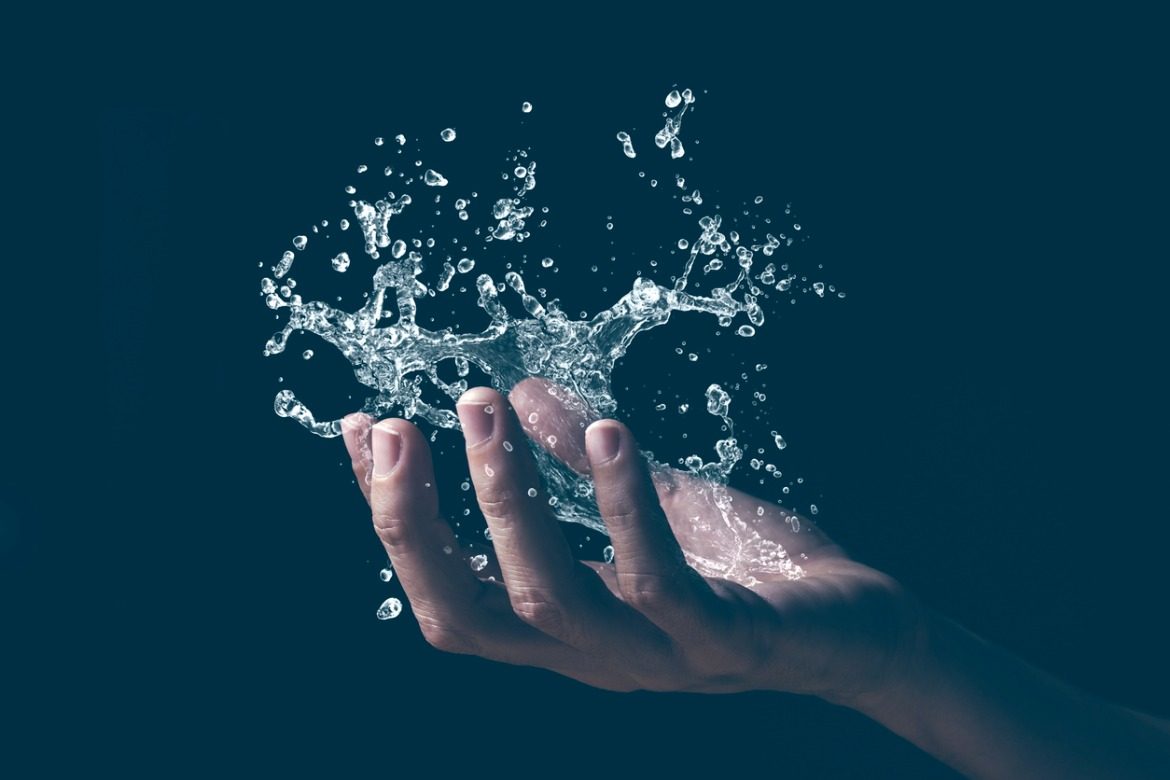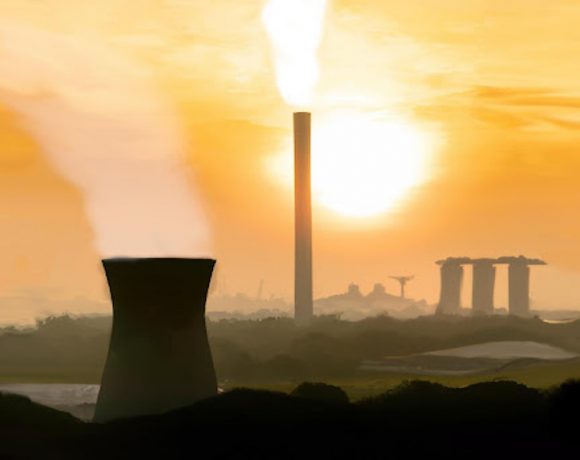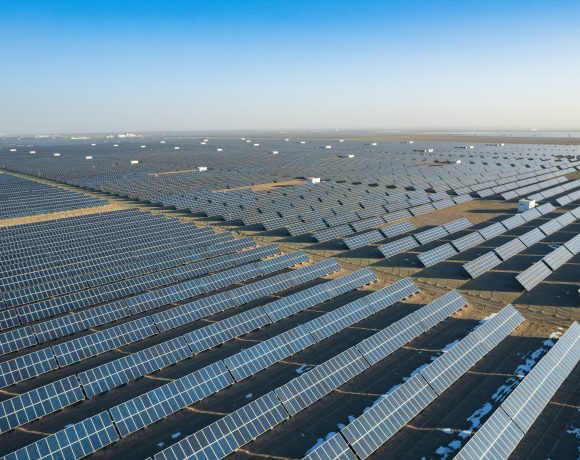- As water pollution increases worldwide, technologies to generate pure water have increased but with undesirable side effects. Several innovative solutions are being proposed at the community level to find new sources for water, but these are smaller initiatives, unable to match industrial requirements.
- Several innovations are trying to bridge the solution gap. One class of innovations called Atmospheric Water Generators use moisture in the air to generate water. However, this solution requires immense amounts of electricity and propagate carbon emissions, making this technology non-renewable.
- India’s homegrown watermaker startup Uravu puts a different spin on such technologies to make it sustainable and carbon-neutral. Uravu labs’s solution can produce thousands of litres of high-quality water for industries and communities through a highly scalable process by utilising inexhaustible atmospheric moisture and only renewable energy.
With the world increasingly looking at sustainable solutions for economic growth, we see options like Photovoltaics (PV) and wind, helping renewable solutions in the electricity space. Similarly, electric vehicles promote renewable solutions in the mobility space. But surprisingly, there are not many renewable options in the water sector. Water is the most contentious of public resources, with many well-known cases of water wars between states and countries through the ages. Civilisation began with water access – It is a natural and collective right to be enjoyed by all without prejudice, equitably and according to the needs. It is equally true that without water, economic engines would stall – thus, water is both a public and an economic need, and due to this, a private need as well [link].
As water pollution increases worldwide, technologies to generate pure water have increased but with undesirable side effects. How many of us know that a litre of Reverse Osmosis (RO) treated water actually generates and wastes three more litres of water with increased mineral content? As groundwater resources grow more polluted, RO treatment increases, resulting in more wasted water – and this is just at the household level. Industrial water usage is far more extensive and pollutes more – AMR, toxic metal enrichment, and hard water are all consequences. These will, in turn, percolate down to groundwater in a long-term vicious cycle that arises from thoughtless short-term water treatment and usage patterns.
This has terrible consequences for populations – a sad and as yet unresolved example of this is seen in 1998 in Plachimada, Kerala state, India, where a soft drinks behemoth set up a bottling plant. As per the agreement between the company and the State Pollution Control Board, up to 1.5 million litres of water was drawn commercially from six bore wells within the factory compound. The permit granted Company X the right to extract groundwater to meet its production demands of 3.8 l of water per litre of beverage. As a result, the water table receded, and groundwater quality deteriorated. Water sampling from that region revealed increased levels of hard water. The colloidal slurry that was generated as a by-product was initially sold to villagers as fertiliser: samples of this slurry were found to contain dangerous levels of toxic metals and cadmium (a known carcinogen). The High Court (on a second appeal) ruled that “groundwater was a public property held in trust by a government and that it had no right to allow a private party to overexploit the resource to the detriment of the people.” However, the Company continued operations on legal grounds and was allowed to operate as long as it found alternative water supply sources. Things finally came to a head when the Supreme Court of India, in 2005, issued a notice to the company allowing it to draw 0.5 Million litres of groundwater per day. The 12-year-old case finally reached closure after much debate when the Company relinquished its license, stating in the SC that it did not intend to resume production from Plachimada. The Adivasis (indigenous population) who were most affected by this are yet to receive compensation (as of 2022). Multiple other plants in other Indian states were closed at various stages (completed facilities, proposed plant and land allotment) as well through the years – the root of this was the depletion of water resources (both actual and anticipated).
This is just one example of industrial water usage being exceptionally thorny. How does one manage this public resource so that there is equitable distribution among the masses (water regularly features as one of the biggest selling points in most Indian election promises) yet enough to manage industrial growth? Where does one find a new source of water? Several innovative solutions are being proposed at the community level (link), but these are smaller initiatives, unable to match industrial requirements.
Several innovations are trying to bridge this gap. One class of innovations called Atmospheric Water Generators (AWGs) use moisture in the air to generate water by using an air-conditioning effect to cool the air and liquefy a fraction of the moisture present. Many players (which work on this technology) are in the fray for this market, worth around USD 2-10 Million per year [link]. However, many of these utilise immense amounts of electricity and propagate carbon emissions, making this technology non-renewable. This has not dampened its appeal, and several companies are working to bring technologies like these to solve water crises in India, with initiatives being spearheaded by the beverages industry [link].
India’s homegrown watermaker startup Uravu puts a different spin on such technologies to make it sustainable and carbon-neutral. Uravu labs (Founded in 2019 by Pardeep Garg, Swapnil Shrivastav, Venkatesh R, and Govinda Balaji) is a Bangalore-based startup building a 100% renewable water solution. The solution can produce thousands of litres of high-quality water for industries and communities through a highly scalable process by utilising inexhaustible atmospheric moisture and only renewable energy. It can also be powered by various energy sources like solar, waste heat, biomass waste, etc. Thus, Uravu’s technology solves three main issues: it conserves already scarce groundwater, uses only renewable sources for power, and supplies consistent, high-grade water for industrial requirements. Uravu is particularly eyeing the beverage sector, a USD 2 Trillion industry globally that uses 1500 billion litres of water annually. Uravu has already onboarded customers like AB InBev (the world’s largest brewer), Radico Khaitan (India’s largest spirit manufacturer), and more.

Photo: Uravu
Technical challenges: The usage of solid desiccant emerged as a challenge. Silica Gel, an abundant, non-toxic and easy-to-handle desiccant, was one of Uravu’s first choices for desiccants in the system. However, at lower RH (Relative Humidity) conditions, it is ineffective at adsorbing moisture and has scalability challenges. The second choice of liquid desiccants (aqueous solutions of hygroscopic salts), which have better performance even in RH conditions as low as 30%, solved this issue. Liquid desiccant systems are easy to scale, with significantly fewer engineering challenges as the output capacity increases. Unlike Silica Gel, which can only perform well for about 10,000 cycles, beyond which it chemically degrades, liquid desiccants are stable, keeping the same performance, even after 25 years of use (truly long-term sustainable) and are non-toxic. The desiccant can be diluted and discharged at the end of the system’s life without any environmental impact, unlike RO water purification, which is the current industry standard.
Uravus’ scalable products cover three capacities (200, 2000 and 20000 litres per day, LPD) with the provision of duplication of systems for even larger volumes. The 200 LPD system can be used in corporate offices with high employee counts for potable water sourcing. The 2000 LPD is ideal for water-intensive small businesses (small breweries, Hotels, cafes, including small resorts) and smart cities. The 20,000 LPD would help beverage companies meet their water requirements. Uravu is currently at 200 LPD (litres per day) capacity. By the end of December 2022, they are aiming for 1,000 LPD; by end-2023, Uravu is aiming to demonstrate a 10,000 LPD system.
The promise of this technology for industrial use and large-scale potable water supply in arid zones has won it several investments from India, Europe and the Middle East, including Speciale Invest (India), Anicut Capital (India), and Rocketship.VC (US), Vesta (France), Venture Catalysts (India), Verso Holdings (Luxembourg), Spectrum Impact (India), Echo River Capital (US) and other angel investors.
A solution like Uravu provides consistent, high-quality water with zero waste compared to reverse osmosis, making sustainability accessible to everyone. This mitigates the water issue for industries, at least to a certain extent. Technologies like Uravu are the next steps to implementing sustainable solutions in public resource management and may well bring a paradigm shift in accelerating industrial growth and promoting social good for inclusive prosperity – a technology that may well be “one tech fits all”.
References:






NO COMMENT